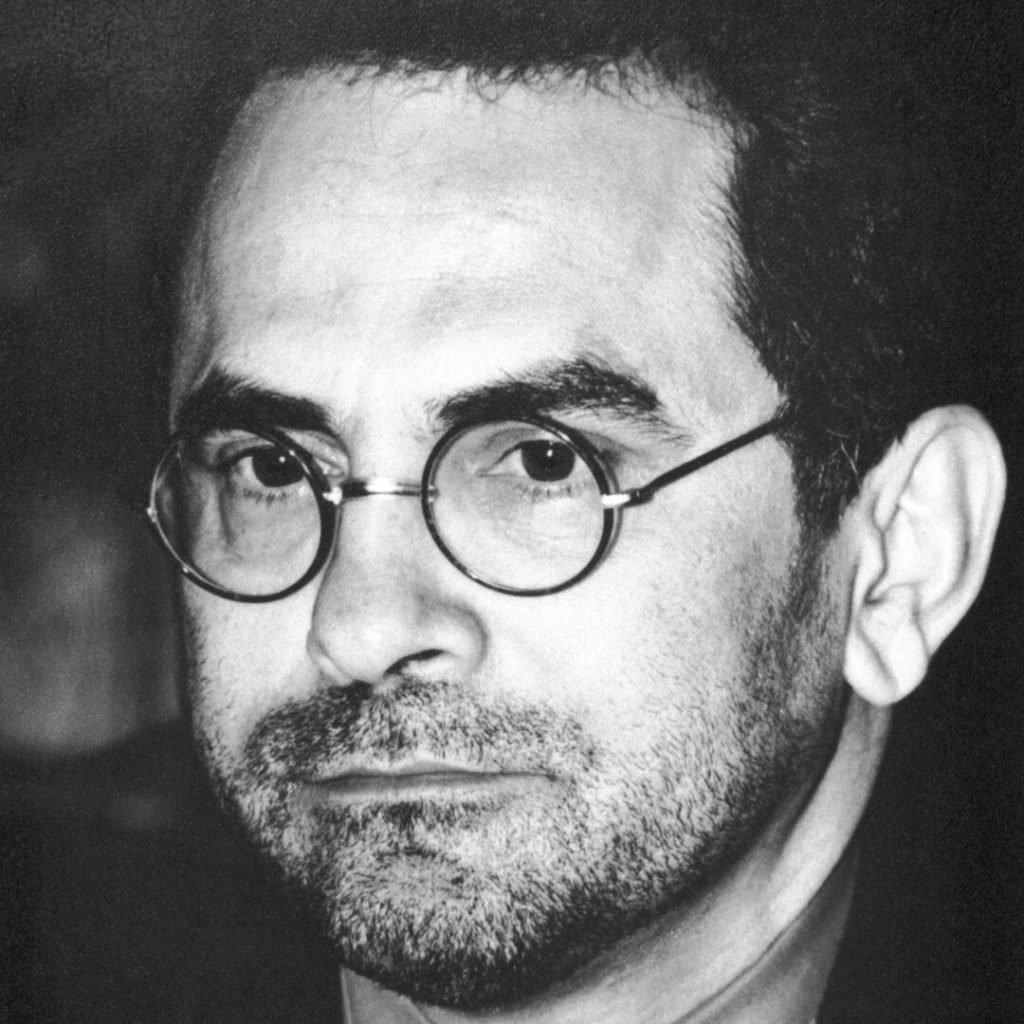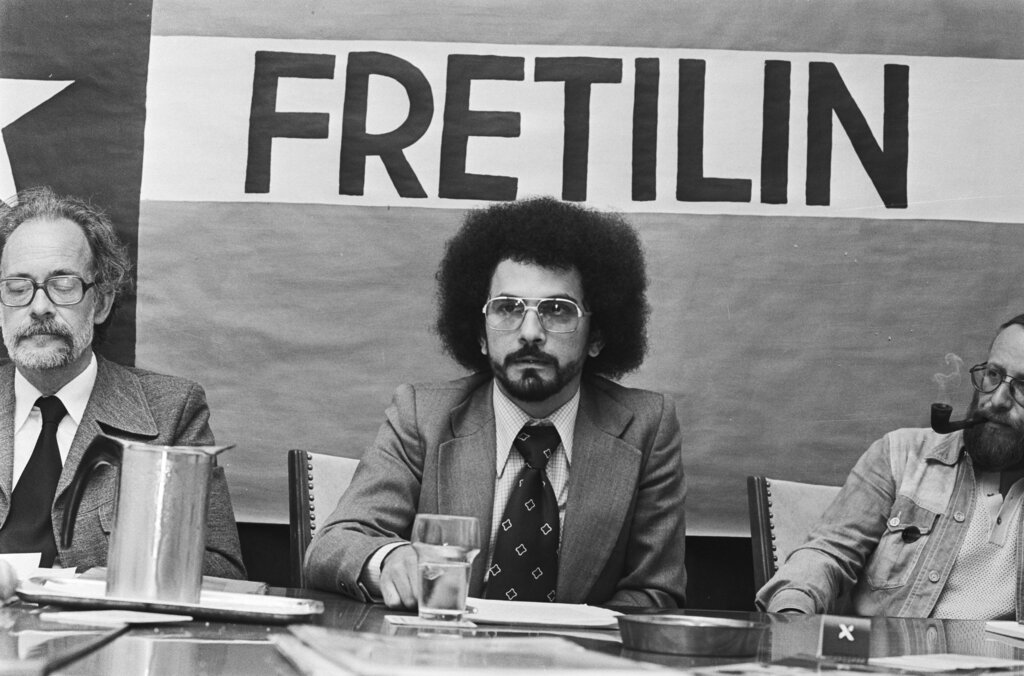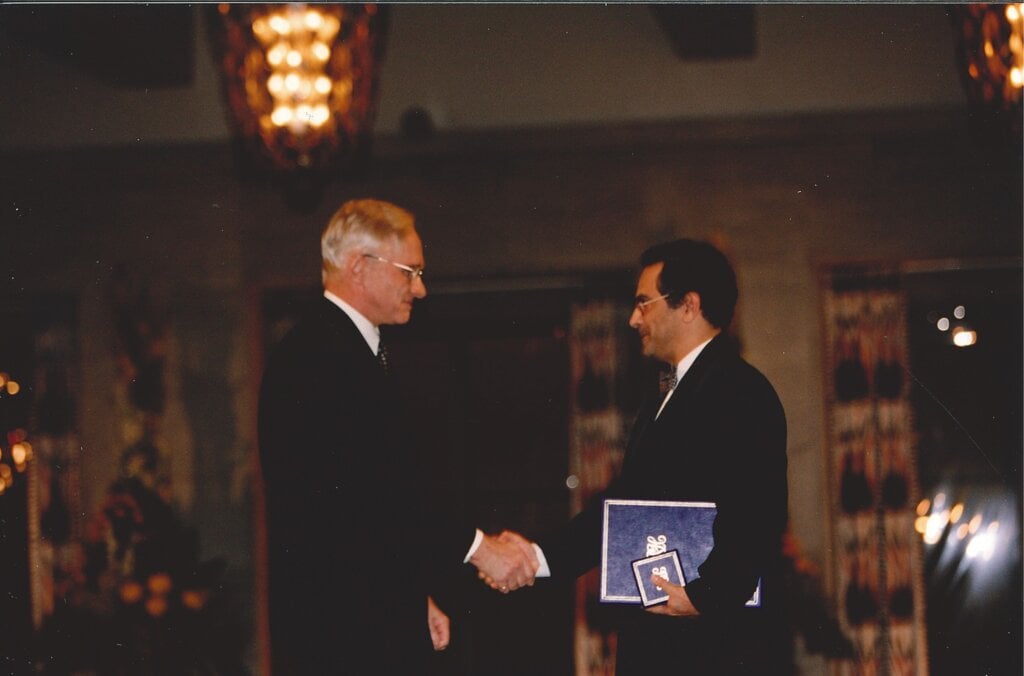José Ramos-Horta
Speed read
José Ramos-Horta was awarded the Nobel Peace Prize, Jointly with Carlos Filipe Ximenes Belo, for his work towards a just and peaceful solution to the conflict in East Timor.

Full name: José Ramos-Horta
Born: 26 December 1949, Dili, East Timor
Date awarded: 11 October 1996
Foreign Secretary, Prime Minister and President
After its liberation from Indonesia, East Timor was beset by social and ethnic conflicts. In 2006, soldiers from its western region revolted and the capital of Dili was plundered by young rioters. A UN forced was used to re-establish law and order. After periods as both foreign minister and prime minister, Ramos-Horta won the presidential election in 2007. He made former president Gusmao his prime minister. The following year both were targets of attempted assassination by rebel soldiers. Ramos-Horta was seriously injured, but returned to his post after successful hospital recuperation in Australia.
"Since the invasion he has lived abroad, unceasingly and with great personal sacrifice collecting and communicating information on the repression, torture and killing in his home country, and acting as East Timor’s principal international spokesman."
Francis Sejersted, Presentation speech, 10 December 1996.
The relentless diplomat
Indonesia invaded East Timor in 1975 after Portugal withdrew. One of those who fought against the unlawful occupation was the journalist José Ramos-Horta. He did not take up arms himself, but he served as foreign minister in exile for the liberation movement, Fretilin. For the next 20 years he travelled throughout the world, speaking on behalf of the East Timorese. Ramos-Horta’s efforts were long disregarded and impeded by the West, which needed Indonesia in the fight against communism. Ramos-Horta lost three siblings in the war and received many death threats, but he refused to be broken. When the Cold War was over and the Indonesian dictator resigned, Indonesia withdrew from East Timor under UN supervision. In 2002 Ramos-Horta became the first foreign minister of an independent East Timor.

Ramos Horta, Fretilin and Xanana Gusmao
When Ramos-Horta heard that he had been awarded the Nobel Peace Prize, he said that it really should have gone to Xanana Gusmao. He was the political and military leader of the Revolutionary Front for an Independent East Timor, Fretilin, the liberation movement and political party to which the peace laureate himself belonged. Gusmao was taken prisoner by Indonesia in 1988 and later sentenced to life in prison. In the autumn of 1999, Gusmao was released, and in 2002 he was elected as the first president of an independent East Timor.
"José Ramos-Horta is a machine that seeks more work than sleep. He is like a waterfall, a volcano. Always on the go, and full of energy."
Yannis Tavridis in the Norwegian newspaper 'Vårt Land', 12 October 1996.

Suharto regime opposed the peace prize to Ramos-Horta
The Indonesian government took a conciliatory tone toward Bishop Belo, while it sharply condemned the Norwegian Nobel Committee’s choice of Ramos-Horta, which it viewed as an insult. In response, Indonesia falsely accused Ramos-Horta of being responsible for atrocities during the war in 1975. The Indonesian ambassador boycotted the award ceremony in Oslo City Hall, and he warned the Nobel Peace Prize laureates not to criticise Indonesia during their stay in Norway. As a result, Belo did not take the chance of appearing at a joint press conference with Ramos-Horta.
| Fretilin Abbreviation for Frente Revolucionara do Timor Leste Independente – East Timor’s independence movement. Founded in 1974. Fretilin fought against the Indonesian occupation. Winner of the first free elections in 2001. |
Learn more
José Ramos-Horta, born December 26, 1949 in Dili, East Timor. Single with one son. Catholic. Living in Lisbon and Sydney ...
Disclaimer: Every effort has been made by the publisher to credit organisations and individuals with regard to the supply of photographs. Please notify the publishers regarding corrections.
Nobel Prizes and laureates
Six prizes were awarded for achievements that have conferred the greatest benefit to humankind. The 14 laureates' work and discoveries range from quantum tunnelling to promoting democratic rights.
See them all presented here.
